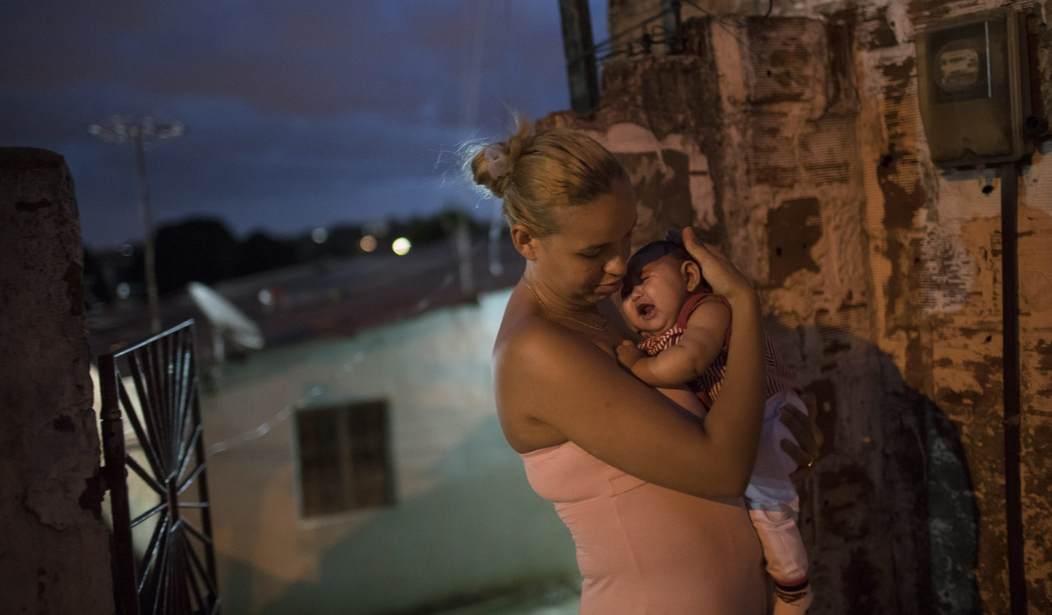The director of the National Institute of Allergy and Infectious Diseases said preparation for the Zika virus outbreak needs to get “very aggressive” as the Centers for Disease Control and Prevention added the U.S. Virgin Islands and Dominican Republic to travel alerts for the mosquito-borne illness.
Infection with the Zika virus is caused by the bite of an infected Aedes mosquito, the same kinds that carry dengue and yellow fever, according to the WHO.
According to the CDC, about 20 percent of those who contract the virus fall ill with symptoms including mild fever, rash, conjunctivitis, muscle and joint pain, and headache that can last up to a week. There is no vaccine or treatment other than treating the symptoms. One of the key concerns is birth defects after pregnant women contract the virus.
The current outbreak began last May in Brazil. The map of countries with active transmission has stretched up all the way to Mexico and Puerto Rico. The CDC has feared that visitors to Central and South America and affected islands, including Samoa, Martinique, Barbados and St. Martin, will bring the virus to the continental United States.
At least half a dozen cases have been noted in the U.S. among travelers who visited affected regions. If a mosquito bites an infected person at home, that mosquito can spread it by biting another person. At least one Puerto Rico case involved transmission on the island as the ill person had not traveled.
NIAID director Dr. Anthony Fauci told CNN that there has been “association both temporally and geographically with some very serious sequelae in babies born from infected mothers.” Guillain-Barré syndrome has also been reported in Zika cases in French Polynesia and Brazil, the CDC said.
Brazil has recorded a sharp spike in babies born with microcephaly (abnormally small heads) and has cautioned women against getting pregnant.
“And so this is something that we really need to get on and study very, very carefully, but also we need to have a preparation, which we are starting now in a very aggressive way, for things like better diagnostics, working on a vaccine, screening for therapeutics and also talking about understanding better the natural history of this particular issue, because it really is brand-new,” Fauci said.
Fauci said Zika “was a fundamentally inconsequential virus until it now swept into an area, namely the Western Hemisphere and the Americas, in which we have not had this before.”
He said travel bans weren’t necessary at this stage.
“Right now, it’s recommended that unless you absolutely have to travel if you’re pregnant, that you don’t travel to those areas until we can figure out a little bit more about what is going on, because this is still something that’s evolving. So I would recommend to the American public to follow closely the CDC recommendations. They’re very clear,” Fauci said.
“I think what people need to understand is that there are a lot of people who will be coming back who are going to be developing this, that that doesn’t mean that there’s Zika in the United States that’s locally transmitted.”
The World Health Organization said Zika “has been isolated in human semen, and one case of possible person-to-person sexual transmission has been described.”
“However, more evidence is needed to confirm whether sexual contact is a means of Zika transmission,” the WHO said.
President Obama met Tuesday with Health and Human Services Secretary Sylvia Mathews Burwell, Centers for Disease Control Director Dr. Thomas Frieden, and Fauci to discuss the spread of Zika.
“I think the president has spoken at some length about the lessons that we can draw from fighting Ebola, that the value of having a critical health infrastructure in place is critical to positive public health outcomes,” White House press secretary Josh Earnest told reporters on Wednesday. “He’s talked about the unique role that the United States can play in mobilizing an international response to diseases like this that do pose a broader public health risk. And we’re certainly mindful of all of that as we consider the risk that is posed by the Zika virus.”
Sen. Kirsten Gillibrand (D-N.Y.) today sent a letter to Fauci urging prioritization into Zika research, noting “the imminent threat of Zika to the United States is deeply troubling, as are reports that the development of a vaccine could take as long as ten years.”
Gilligrand said she would urge colleagues on the Senate Appropriations Committee “to provide NIAID with emergency funding to support your efforts in accelerating the development of screening, treatment and prevention technologies.”









Join the conversation as a VIP Member